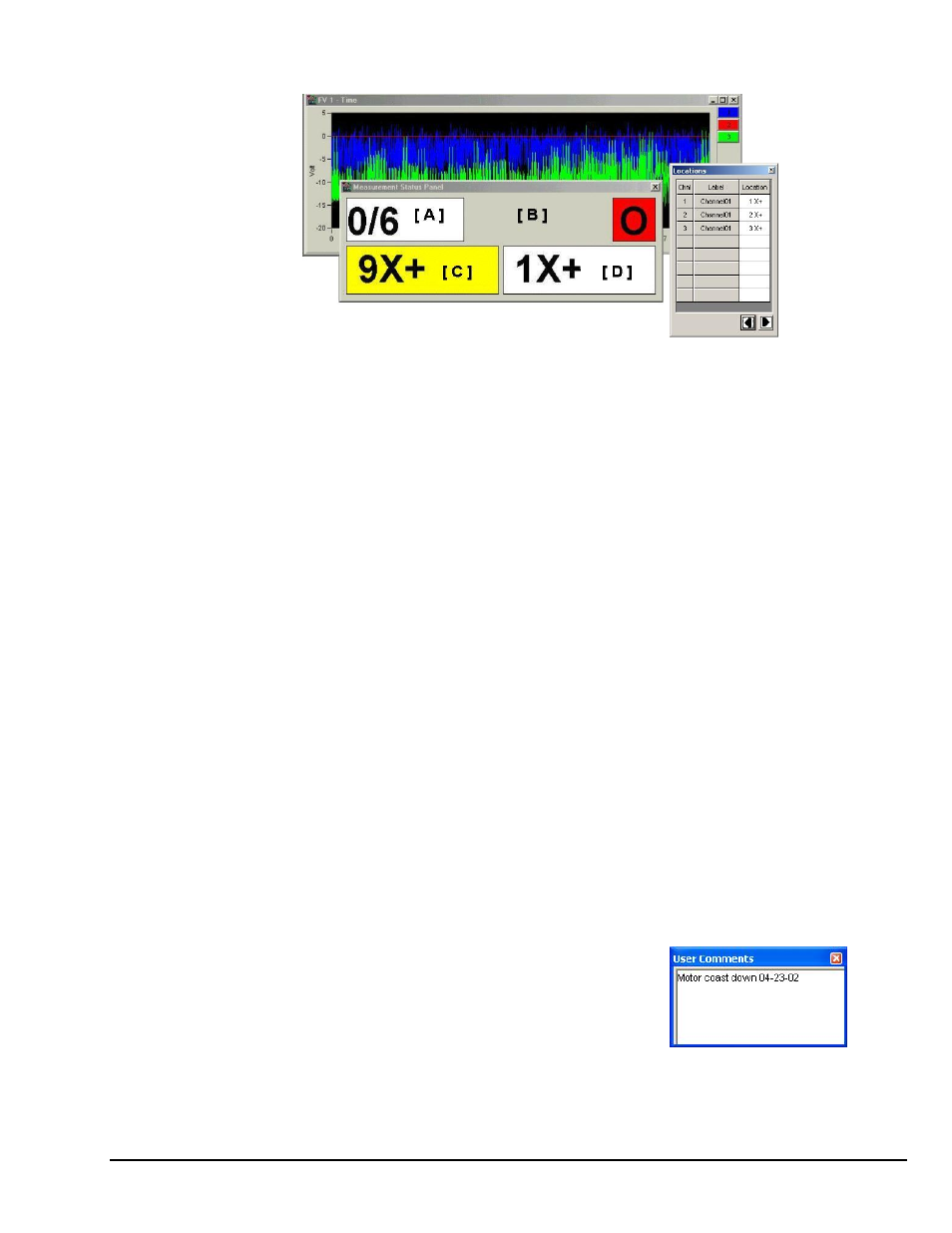Measurement status panel, User comments, Measurement status …… 3-17 user comments ……3-17 – Measurement Computing eZ-PostView rev.2.0 User Manual
Page 75

eZ-Analyst
979595
Menus
3-17
Window Menu
>
Measurement Status Panel
Applies to eZ-Analyst Only
The Measurement Status Panel and Modal Locations Window
on Top of a Plot Window
Note: The bracketed letters pertain to definitions provided in the following text.
The Measurement Status Panel only applies to eZ-Analyst.
The panel provides basic, but
important information, including trigger and processing conditions, and reference and response
coordinates. Status Areas of the panel are as follows:
[A] – Averaging Status. Displays the number of measurements completed followed by the total
number of measurements. For example, “1/6” indicates that 1 of 6 measurements has
been completed.
[B] – Trigger/Processing Status. Displays the following:
T – Triggered
W- Waiting for Trigger
S – Saved the data
C – Completed measurement
O – Overload rejected
D (with yellow background) – Double Hammer Rejected
[C] – First Response Coordinate. Shows the channel number and the modal location. (Note 1)
[D] – First Reference Coordinate. Shows the channel number and the modal location. (Note 1)
Note 1: A Response or a Reference Coordinate with a yellow background indicates that the
field is used for the “increasing” method. For example, the Response Field (figure,
item “C”) with a yellow background means that the response increase method is
being used. This is discussed in the FFT Setup Tab section of chapter 4.
Note 2: Measurement Status indicators are disabled when recording.
The large size of the status areas allows the user to see the measurement status from a
relatively long distance, i.e., as compared to the very limited viewing range offered by
standard-sized GUI text display fields. The feature has proven useful in one-man “impact-
testing” operations pertaining to modal type measurements.
Window Menu
>
User Comments
Selecting “User Comments” brings up a size-adjustable
dialog box, which consists of a text field. User Comments
provides the user a means by which he or she may review
previous comments and add new ones.
